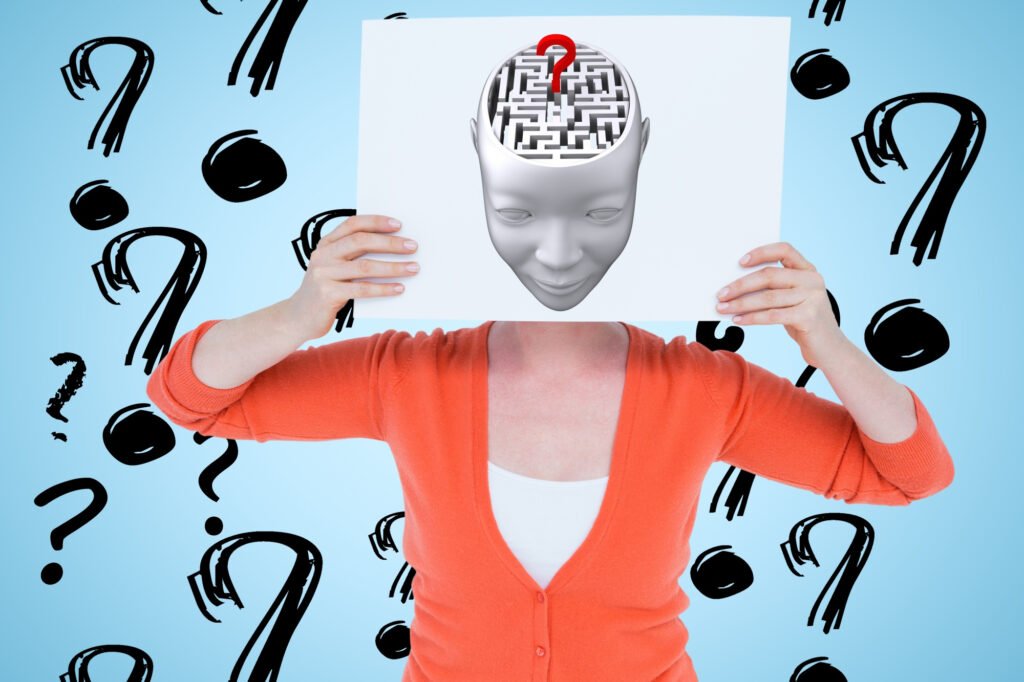Introduction
Unraveling the Enigma: A Comprehensive Exploration of Schizophrenia

Understanding Schizophrenia
Historical Perspective
To comprehend the present, one must first explore the past. The historical perspective of schizophrenia reveals a journey marked by evolving perceptions, shifting paradigms, and an ongoing quest for comprehension. From ancient civilizations’ mysticism to the emergence of modern psychiatric thought, tracing the historical trajectory reveals the challenges and progress in understanding this enigmatic condition.
Key Symptoms and Characteristics
Schizophrenia manifests as a spectrum of symptoms, categorically classified into three main dimensions: positive, negative, and cognitive.
Positive Symptoms
Positive symptoms are characterized by an excess or distortion of normal functioning, often manifesting as hallucinations, delusions, disorganized thoughts, and erratic behaviors. These symptoms, though disruptive, provide a unique window into the altered reality experienced by individuals with schizophrenia. Exploring the nuances of positive symptoms unravels the kaleidoscope of perceptions that color their world.
Negative Symptoms
In stark contrast, negative symptoms denote a reduction or absence of certain abilities or emotions that are typically present in individuals without schizophrenia. Social withdrawal, diminished motivation, anhedonia, and cognitive deficits contribute to the intricate tapestry of negative symptoms. Understanding these aspects is crucial for unraveling the challenges individuals with schizophrenia face in interpersonal relationships and daily functioning.
Cognitive Symptoms
The cognitive dimension of schizophrenia encompasses impairments in memory, attention, and executive functions. Cognitive symptoms, often overshadowed by more overt manifestations, play a pivotal role in the overall impact of the disorder. A detailed exploration of cognitive symptoms sheds light on the cognitive challenges faced by individuals with schizophrenia, influencing their ability to navigate the complexities of daily life.
Beyond the Symptoms: A Holistic Perspective
While dissecting the symptoms provides valuable insights, it is equally essential to adopt a holistic perspective that considers the interplay of biological, psychological, and social factors in the manifestation and progression of schizophrenia. From genetic predispositions to environmental triggers, understanding the multifaceted nature of schizophrenia fosters a more comprehensive approach to diagnosis, treatment, and support.
Contemporary Approaches and Research
The field of schizophrenia research is dynamic, with ongoing efforts to unravel its biological underpinnings, improve diagnostic accuracy, and develop more effective treatment modalities. This section explores the latest advancements in neuroscience, genetics, and psychopharmacology, offering a glimpse into the promising avenues that may redefine our understanding and management of schizophrenia in the future.
Schizophrenia: Navigating the Labyrinth of the Mind

Exploring the Metaphor
The labyrinth metaphor offers a vivid depiction of the convoluted journey individuals with schizophrenia navigate. Much like the intricate passages of a labyrinth, the mind of someone affected by this disorder is a complex network of thoughts, emotions, and perceptions. The twists and turns represent the unpredictable nature of schizophrenia, where reality can suddenly morph into a surreal landscape.
Within this labyrinth, individuals may grapple with hallucinations, delusions, and disorganized thinking. The metaphor emphasizes the struggle to find a clear path through the maze of symptoms, mirroring the challenges faced by both those affected and their loved ones. Understanding the labyrinth metaphor not only deepens our appreciation of the disorder but also highlights the need for a nuanced approach to diagnosis and treatment.
Impact on Perception and Reality
Schizophrenia has a profound impact on perception, distorting the individual’s sense of reality. The labyrinth of the mind becomes a battleground where the lines between what is real and what is imagined blur. Hallucinations, whether auditory, visual, or tactile, create an alternate reality that coexists with the external world. These sensory distortions can be terrifying, confusing, and isolating, further complicating the individual’s journey through the labyrinth.
Moreover, delusions and false beliefs that are resistant to reason or contradictory evidence add layers to the complexity of the schizophrenic experience. The affected individual may find themselves trapped in a web of conspiracies or grandiose thoughts, unable to discern the fabricated from the authentic. The impact on relationships, daily functioning, and overall quality of life is profound, as the labyrinth of the mind tightens its grip on the individual’s sense of self.
Challenges in Diagnosis and Treatment
The intricate nature of schizophrenia poses significant challenges in both diagnosis and treatment. Unlike many other medical conditions, there is no definitive test for schizophrenia. Diagnosis relies on a thorough evaluation of symptoms, medical history, and, at times, collaboration with loved ones. The labyrinth metaphor is particularly apt here, as the process of diagnosis often involves navigating through a myriad of symptoms and their variations.
Treatment, too, is complex and multifaceted. Medications, therapy, and support systems are crucial elements, but their effectiveness varies from person to person. The labyrinth of treatment options requires a personalized approach, acknowledging the unique challenges each individual faces. Stigma and misconceptions surrounding schizophrenia can also act as barriers to seeking help, adding another layer of complexity to the journey toward recovery.
Unraveling the Causes: Exploring the Intricate Web of Depression

Genetic Factors:
At the heart of the labyrinth lies the role of genetics in predisposing individuals to depression. Research suggests that there is a hereditary component to this mental health disorder, with certain genetic variations increasing susceptibility. Families with a history of depression often find themselves grappling with the intergenerational transmission of this condition.
The intricate dance of genes involved in depression encompasses a range of factors, including neurotransmitter function, stress response regulation, and even the size of certain brain structures. While genetics alone may not be the sole determinant, understanding one’s genetic predisposition can illuminate the path toward effective prevention and management.
Neurochemical Imbalances:
Within the labyrinth, the twists and turns lead us to the realm of neurochemistry, where the delicate balance of neurotransmitters influences mood and emotional well-being. Serotonin, dopamine, and norepinephrine, among others, play pivotal roles in regulating mood, and any disruption in their balance can contribute to the onset of depression.
Neurochemical imbalances can arise from various sources, including chronic stress, trauma, or even certain medical conditions. Exploring the connection between brain chemistry and depression not only enhances our understanding of the disorder but also opens avenues for targeted interventions, such as medication and psychotherapy, to restore balance and alleviate symptoms.
Environmental Triggers:
As we navigate the labyrinth, we encounter external factors that act as triggers for depression. The environment in which an individual lives, works, and interacts can significantly impact mental health. Stressful life events, trauma, socioeconomic factors, and a lack of social support can weave a web of challenges that contribute to the development and exacerbation of depression.
Environmental triggers are diverse and multifaceted, making it essential to consider the broader context in which individuals experience their lives. Addressing these triggers requires a holistic approach that combines individual resilience-building with societal efforts to create supportive and nurturing environments.
Read Also: Gout Gone Wrong: Mastering Effective Management Strategies
A Holistic Approach to Schizophrenia Management

Medications
Antipsychotic Medications: Unraveling the Complex Web
Antipsychotic medications are often the cornerstone of schizophrenia treatment. While they can be effective in managing symptoms, understanding the nuances of different medications and their potential side effects is crucial. The article will delve into the various classes of antipsychotics, their mechanisms of action, and the importance of ongoing collaboration between patients and their healthcare providers to find the most suitable medication regimen.
Managing Side Effects: Striking a Balance
Discussing the potential side effects of antipsychotic medications is essential for fostering informed decision-making. This section will provide insights into common side effects, strategies for managing them, and the importance of open communication between patients and healthcare professionals to ensure a balanced approach to medication management.
Psychotherapy:
Cognitive Behavioral Therapy (CBT): Rewiring Thought Patterns
Psychotherapy, particularly cognitive behavioral therapy (CBT), plays a crucial role in helping individuals with schizophrenia navigate distorted thought patterns. This section will explore how CBT can be tailored to address the unique challenges faced by individuals with schizophrenia, promote symptom management, and improve quality of life.
Family-Focused Therapy: Strengthening Support Systems
The impact of schizophrenia extends beyond the individual diagnosed, affecting family dynamics. Family-focused therapy is a valuable psychotherapeutic approach that involves the entire support system. This part of the article will highlight the significance of involving family members in the treatment process, providing education, and fostering a supportive environment.
Supportive Interventions:
Family Support: The Pillar of Stability
Family support is a linchpin in the treatment of schizophrenia. This section will explore the pivotal role that families play in providing emotional support, facilitating treatment adherence, and contributing to the overall well-being of individuals with schizophrenia. Practical tips for families navigating this journey will be discussed.
Community Resources: Building Bridges to Recovery
Beyond the family, community resources are invaluable in creating a robust support network. This part of the article will shed light on the diverse resources available in communities, including support groups, vocational training, and social services. Empowering individuals with schizophrenia to connect with these resources can enhance their sense of belonging and contribute to a more fulfilling life.
Schizophrenia Unveiled Through Personal Narratives

Real-life Experiences:
The Tapestry of Voices: A Mosaic of Schizophrenia Narratives
Each individual grappling with schizophrenia weaves a unique tapestry of experiences. By sharing personal stories, we aim to provide a diverse and nuanced perspective on living with schizophrenia.
Behind the Mask: Unveiling the Unseen Struggles
Schizophrenia often remains hidden behind a mask, obscuring the daily battles faced by those living with the condition. Real-life narratives offer a glimpse into the emotional turmoil, cognitive challenges, and societal obstacles that individuals with schizophrenia confront.
Finding Light in the Darkness: Triumphs and Resilience
Amidst the challenges, there are stories of triumph and resilience. Personal narratives reveal the strength it takes to navigate the labyrinth of the mind and the milestones achieved by those who refuse to be defined by their diagnosis.
Coping Strategies:
Artistic Expression as Therapy: Painting the Emotions
Some individuals find solace in artistic expression as a means of coping. We explore how painting, writing, and other forms of creative outlets become powerful tools for managing the emotional turbulence associated with schizophrenia.
The Role of Support Systems: Nurturing a Foundation for Stability
Coping with schizophrenia often necessitates a strong support system. We examine the pivotal role played by family, friends, and mental health professionals in creating a stable foundation for individuals facing the challenges of this disorder.
Mindfulness and Meditation: A Path to Inner Calm
Mindfulness and meditation have proven to be effective coping strategies for individuals with schizophrenia. We explore how these practices offer a way to cultivate inner calm and enhance overall well-being.
Breaking the stigma:
Dispelling Myths: Challenging Misconceptions About Schizophrenia
Stigma arises from misinformation and misconceptions. By debunking myths surrounding schizophrenia, we contribute to a more informed and compassionate understanding of the condition.
Empowering Voices: Advocacy and Education
Breaking the stigma requires a collective effort. We highlight the importance of advocacy and education in empowering individuals with schizophrenia to share their stories.
Building Bridges: Fostering Empathy and Compassion
Ultimately, breaking the stigma is about fostering empathy and compassion within society. We explore how open conversations, community engagement, and mental health awareness initiatives contribute to dismantling the barriers that stigmatize schizophrenia.
Schizophrenia NHS: Understanding Diagnosis, Treatment, and Support Services

Schizophrenia is a complex and multifaceted mental health disorder that profoundly affects an individual’s thoughts, emotions, and behaviors. When it comes to the National Health Service (NHS) and schizophrenia, the focus extends beyond mere recognition of symptoms to a comprehensive approach that encompasses diagnosis, treatment, and support services.
Diagnosis involves a thorough evaluation by mental health professionals, often utilizing criteria outlined in widely accepted diagnostic manuals. The NHS employs a combination of interviews, observations, and sometimes medical tests to arrive at an accurate diagnosis. Once diagnosed, treatment plans are tailored to the unique needs of each individual, incorporating a range of interventions, such as antipsychotic medications.
The NHS places a strong emphasis on fostering a collaborative relationship between healthcare providers and individuals with schizophrenia, acknowledging the importance of personalized care.
These services may include access to community-based mental health teams, vocational support, and housing assistance. The NHS strives to destigmatize schizophrenia, promoting awareness and understanding in the community.
Conclusion
In the final pages of the intricate narrative that is “Schizophrenia: Conclusion,” the enigmatic journey through the labyrinth of the human mind unravels its last secrets. As the concluding chapter unfolds, it is not merely an endpoint but a gateway to understanding, challenging preconceptions, and embracing the complexities of mental health. The article navigates through the multifaceted landscape of schizophrenia, bringing together threads of research, personal narratives, and medical breakthroughs to weave a tapestry of comprehension. It beckons readers to ponder not just the clinical aspects but the profound human experiences of those touched by this intricate condition. Like a poignant symphony’s final notes, “Schizophrenia: Conclusion” resonates with a sense of closure and an invitation for continued exploration into the mysteries that lie within the human psyche.
